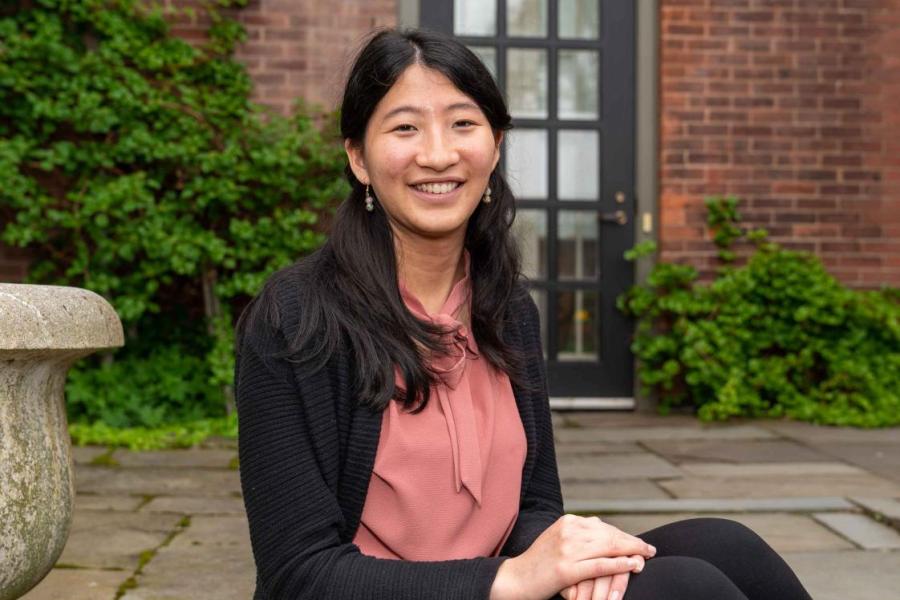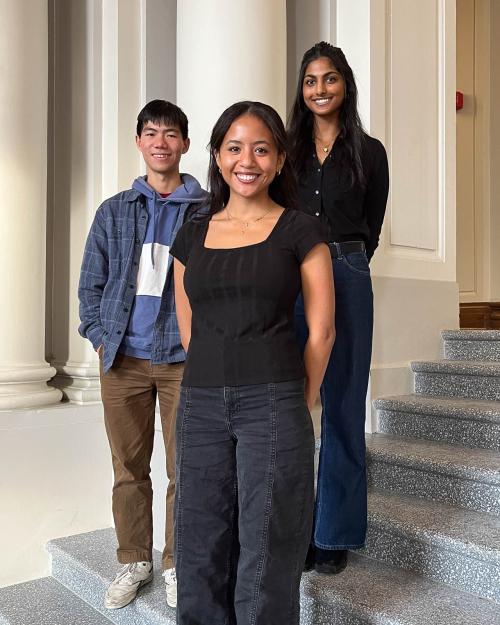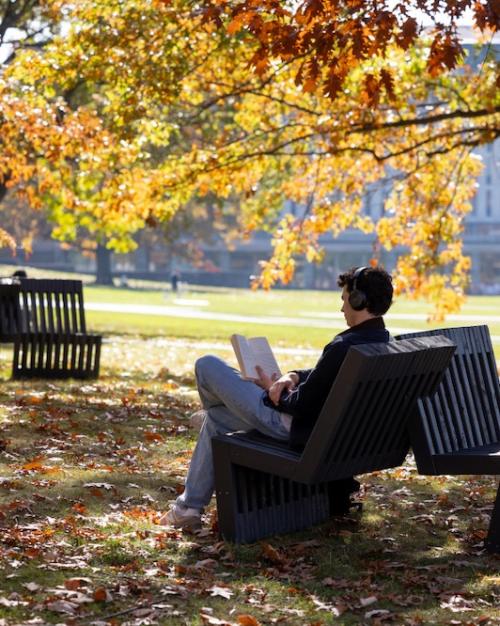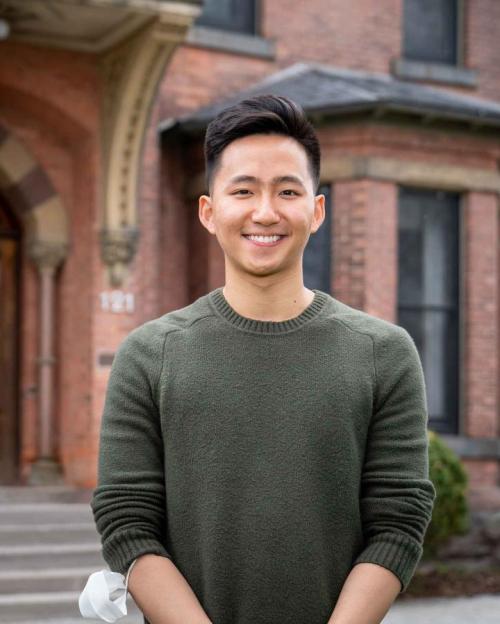From philosophy to music to archaeology to Africana studies, seniors involved in the Humanities Scholars Program (HSP) and honors students across the College of Arts & Sciences shared their projects with an audience of faculty, students and staff May 6 at the A.D. White House.
Twenty of the 36 students who presented are part of HSP, launched in 2020 in the College of Arts & Sciences and open to students throughout the university who have a humanities major or minor. The program supports independent, interdisciplinary undergraduate research in the humanities and offers a supportive community, a series of curated courses, structured mentorship, special programming and research opportunities and funding. This is the first group of students to graduate who have taken part in the program.
“I wanted to combine my interests in information science and data science and archaeology and do some sort of computational analysis within archaeology,” said Angel Nugroho ’22, an information science and archaeology major who presented her work studying the increase in pseudo archaeological posts on social media platforms.
Since archaeology doesn’t typically lend itself to large quantitative data sets, she chose to focus on the prevalence of pseudo archeological information on social media platforms such as Twitter, following content that included tags like #Atlantis, #ancientaliens and #ancientastronauts. These posts contain fake and misleading photos and information about ancient sites, artifacts and events, along with conspiracy theories purporting to tell the “real story.”
“Popular culture and pseudoscience are what a lot of people are exposed to when they think about archaeology,” she said. “But these posts are limiting the past to a single explanation and accusing certain populations of not being responsible for their achievements, instead attributing it to aliens.”
Nugroho said the Humanities Scholars Program helped her decide to double-major in archeology, she said, and it also gave her the structure to combine her interests, Nugroho said. She’s headed to a tech consulting job in D.C., but would like to eventually go to graduate school and pursue studies in the digital humanities.
Justin Wang ’22, a philosophy and economics major, studied philosopher and author David Boonin and his arguments related to victim restitution, particularly how to properly punish offenders who, because of their wealth, aren’t as impacted by financial punishments.
“As a philosophy major, I’ve learned in classes when I read something to deconstruct what the arguments are,” Wang said. “Some arguments that people make don’t seem very intuitive, but they hold up under scrutiny. In this case, I had an intuitive thought that there’s a little bit more to this argument.”
Wang said he’s appreciated the community created in the Humanities Scholar Program.
“I joined the program because I wanted to find a community of like-minded people who were interested in humanities research,” he said.
“It is so exciting to see the inaugural cohort complete these innovative research projects,” said Durba Ghosh, professor of history (A&S) and faculty director of the program. “The students have faced a lot of challenges in the last two years, and how exciting to see them share their work (in person!) at the Society for the Humanities, Cornell’s hub for humanities research.”
See the full list of Humanities Scholar presentations here.






